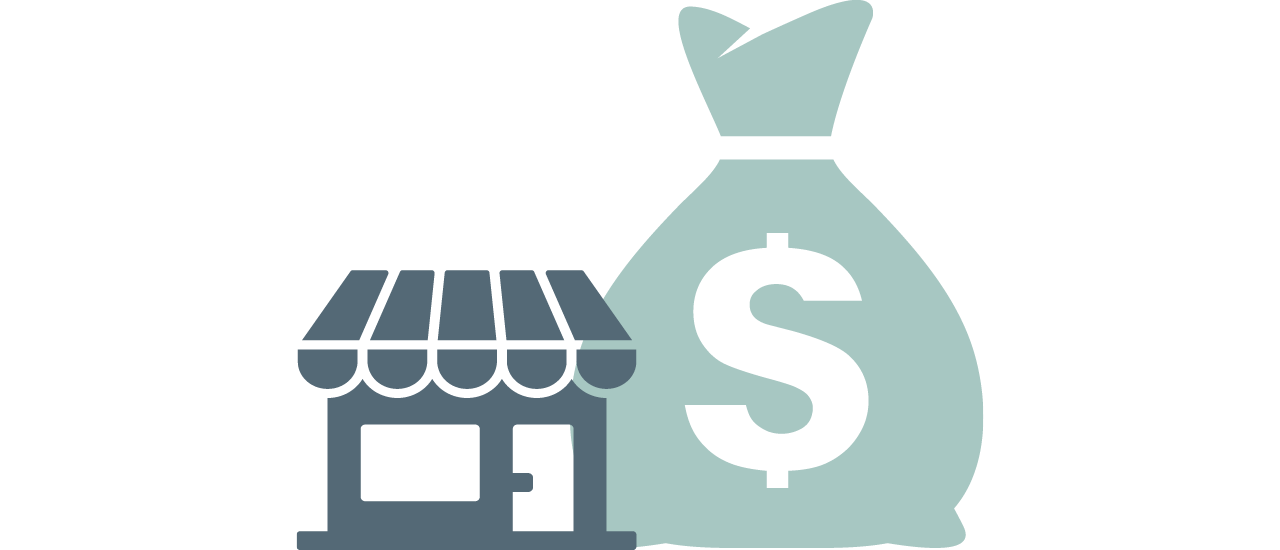Coronavirus Emergency Funding Options for Small Businesses

Federal and state government programs are targeting small businesses with emergency loans and grants designed to mitigate the impact of the coronavirus pandemic.
Many of those programs are part of the $2.2 trillion federal Coronavirus Aid, Relief, and Economic Security Act, which provides economic relief to individuals, small businesses, and industries.
Under the act, small businesses—companies with less than 500 employees—will receive $377 billion in aid, with the U.S. Small Business Administration administering $349 billion of that through the Paycheck Protection Program.
Here’s a summary of the major federal programs:
- Paycheck Protection Program: SBA lenders began processing applications April 3 for this program, which provides small businesses with forgivable loans up to $10 million to cover payroll and certain other costs.
- Economic Injury Disaster Loans and Emergency Economic Injury Grants: The SBA’s Economic Injury Disaster Loan program provides small businesses with working capital loans of up to $2 million to help overcome temporary loss of revenue. Small businesses are also eligible to apply for an EIDL advance of up to $10,000.
- Small Business Debt Relief Program: Covers six months payments on SBA loans, including principal, interest, and fees. Also provides immediate relief to small businesses with non-disaster SBA loans, in particular 7(a), 504, and microloans.
- Employee Retention Credit: Refundable tax credit represents 50% of up to $10,000 in wages paid by an eligible employer whose business is financially impacted by COVID-19. The credit is available to all employers regardless of size, including tax-exempt organizations, with two exceptions—state and local governments and employers that accept small business loans.
- Delay of Payment of Employer Payroll Taxes: Allows taxpayers to defer paying the employer portion of certain payroll taxes through the end of 2020. The deferred payments are due in two equal installments—at the end of 2021 and the end of 2022.
Overwhelming Demand
The Paycheck Protection Program drew overwhelming demand from small businesses around the country when it launched April 3, with at least $5 billion in loans approved that day alone.
Moraima Gutierrez from the SBA’s Connecticut told an April 1 conference call hosted by the Better Business Bureau that initial demand for the separate EIDL program crashed the agency’s website.
“This morning, we were up to $26 million in loans approvals in Connecticut in the last week and a half,” she said. “Things are working now and they’re working better.”
Gutierrez also reminded employers that when they apply for an EIDL loan, to check off a box that includes a $10,000 advance, which will be forgiven.
Chelsea Groton Bank senior vice president and commercial lending manager Carolyn Welch told listeners the bank’s loan officers were spending “a lot of time” speaking with concerned borrowers.
“They’re worried about their business, they’re worried about family and their livelihood,” Welch said.
“My advice to small business owners is to reach out and talk to your banker, whoever it is.”
‘Stay Afloat’
CBIA’s Eric Gjede told the April 1 call a survey of employers produced by CBIA, the state Department of Economic and Community Development, and AdvanceCT found 82% expect sales and revenue declines for the first quarter of 2020.
Fifty-five percent of survey respondents said immediate working capital and financial assistance was most pressing need government can address.
“We have had nonstop inquiries from our membership on how to navigate the programs that are being offered,” he said.
“Businesses are looking at all of these program and searching for anything that will keep them afloat.
“I hope more is coming because the demand in Connecticut is unbelievable.”
Gjede noted that employers also welcomed temporary tax changes, including extending state and federal income tax deadlines to July 15 and the automatic extension of state sales tax deadlines.
“That certainly was welcome news,” he said.
Connecticut Programs
DECD suspended the application process for its emergency relief program, which offered no-interest loans up to $75,000 to employers with less than 100 employers, after receiving more than 4,000 applications in less than 48 hours.
Deputy commissioner Glendowlyn Thames told the April call that in addition to that loan program and extending tax deadlines, the Lamont administration had pushed for additional relief for smaller reliefs.
She noted that a 30-day moratorium on payments due for gas, electricity, and water was extended to businesses.
And on March 31, the administration announced a mortgage relief agreement with more than 50 financial institutions.
Under the agreement, participating lenders will offer mortgage-payment forbearance of up to 90 days, allowing borrowers to reduce or delay monthly mortgage payments.
She added that DECD will continue to monitor and assess the impact of the pandemic on Connecticut small businesses.
For more information, contact CBIA’s Eric Gjede (860.480.1784) | @egjede
RELATED
EXPLORE BY CATEGORY
Stay Connected with CBIA News Digests
The latest news and information delivered directly to your inbox.


